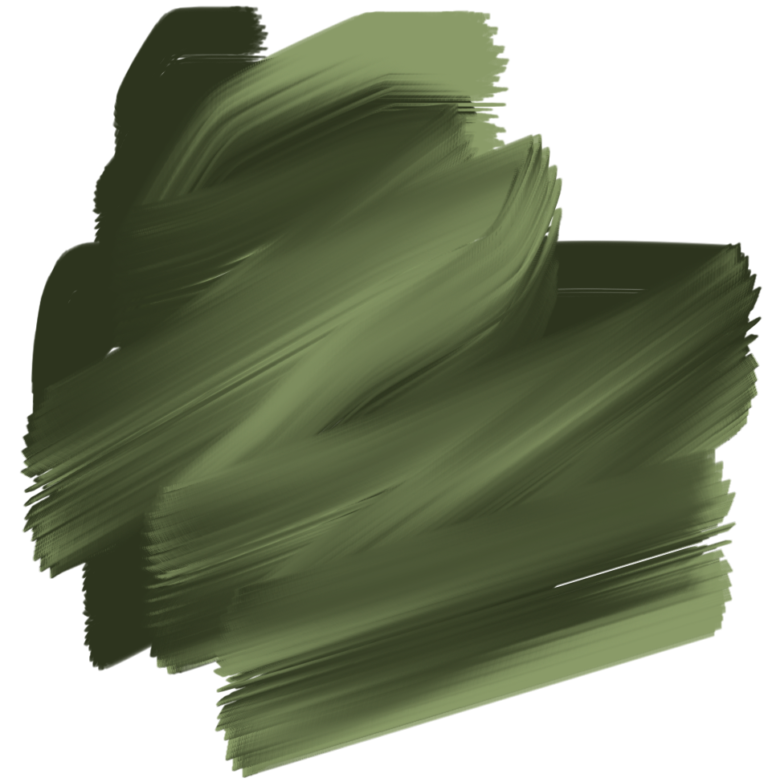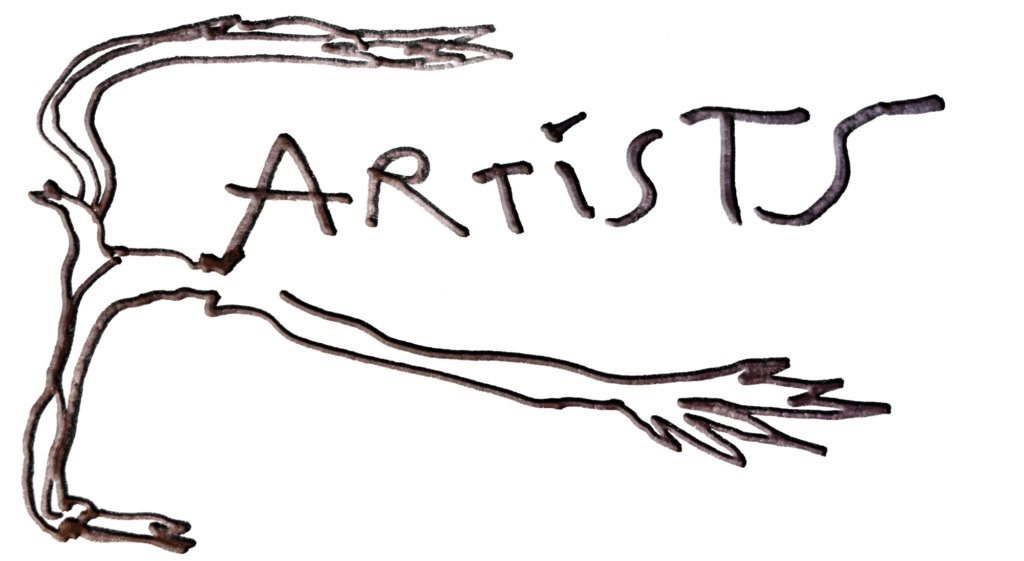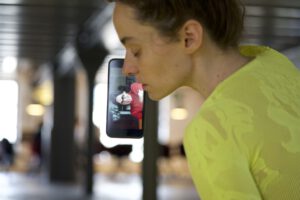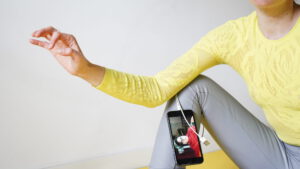

Slime
4/11 at 21:00 & 5.11 at 19pm // tickets
Zilveren Zaal, Beursschouwburg

Slime is a post-digital choreographic object that questions the relationship between tactility and technology. When I touch my mobile phone, does it not touch me in return? Is it really a matter of a “who” who touches a “what”? In interaction with Vinciane Despret’s conference, “Imaginaires des futurs possibles : 2ème enquête – Faire récit avec les animaux”, Slime tries to explore what the philosopher calls, through her account of the Ulysses community*, the middle voice: “The subject is the one who presents himself, but there is a crowd that moves behind him, they say*. So things, like creatures, do. This is what our ancients called the middle voice. With it, no one can be either totally passive or totally active, no verb stands alone, it is always the result of another action that welcomes the one who mediates a cascade of doing.”
Performance and conception: Anastasia Guevel
Dramaturgy: Estelle Le Nestour
Sound and light design: Nadia Bonneau and Clarice Calvo-Pinsolle
Physical trainer: Agathe Thevenot
And the precious support of Charleroi Danse, Bâtard Festival, workspacebrussels, studio Thor, Kaaistudio’s, and Kunstencentrum Buda.
Anastasia Guevel: @anastasiaguevel

Visual artist, dancer and choreographer lives and works in Brussels.
She holds a Master’s degree in Plastic, Visual and Spatial Arts, Drawing, Sculpture and Choreography from ISAC (Institute of Arts and Choreography).
Her research explores the intersections between artistic creation and philosophy, and questions the place of the body in the production of knowledge.
Her recent projects, between performances, installations, sculptures, and care, seek to decentralize the human, to relativize its place, to disturb the border between the living and the non-living. This general reflection on the different modes of existence leads her to explore expanded states of consciousness, alternative modes of attention. In this sense, Anastasia is currently training in fasciapulsology, a practice of laying on of hands, which proposes non-intentional relational touches. Fasciapulsology is a perpetual search for consent, a permanent appreciation of limits and expanses, a circulation between the fixed and the volatile. This approach to touch and relationship is now at the center of her work. Since 2021, she is co-founder of the collective Forest de Soin and member of the artistic cooperative En Archipel.









